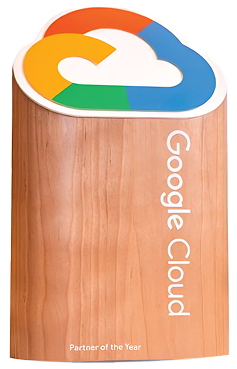The Security Overview of CloudFuze’s Cloud File Transfer Platform
When businesses transfer data between different cloud platforms, they expose sensitive information to potential security risks. This includes the risk of unauthorized access, data breaches, or other potential threats. A breach during cloud migration could have severe consequences, impacting business operations and damaging the organization’s reputation.
CloudFuze provides a secure environment for organizations seeking to transfer their data seamlessly across cloud platforms. This article will provide complete details on how CloudFuze ensures your data is secured throughout the migration.
CloudFuze’s Security
The following are the four primary focus areas for us when it comes to security.
- Authorization of users’ cloud service/services
- Storage of users’ cloud service authorization information
- Security of users’ data during the migration process
- Defending our infrastructure from external threats
1. Cloud Service Authorization
To move data between cloud storage accounts and provide other CloudFuze services, we need to collect your authorization information and store it for future use. Depending upon the type of cloud accounts/services, we follow two different methods to collect authorization information from you. One is OAuth protocol, and the other is the direct password or key collection.
OAuth Protocol

CloudFuze uses the OAuth 2.0 standard for communication and accessing the source and destination API. OAuth eliminates the need to share sensitive information like your cloud account passwords with CloudFuze. You can revoke access to CloudFuze from your cloud storage account at any time you want.
Direct Passwords and Keys
If certain storage systems do not support the OAuth 2.0 security standard, we insist on strong passwords or access keys. Information collection occurs through our web interface over a highly secure TLS connection that uses strong ciphers, generally RSA 2048 bits.
2. Storage of Authorization Information
CloudFuze must store users’ authorization information, such as tokens, keys, and passwords, to facilitate data transfers between cloud storage accounts/services. All this sensitive data is encrypted using the RSA-2048 cryptographic cipher. We store this data in an encrypted form on our internal servers with zero access to outside parties.
3. Data Security During Migration
In most cases, CloudFuze uses data streams transferred from one cloud to another. For example, some cloud storage providers, such as OneDrive, don’t accept streams for large files over 100 MB. In such scenarios, we use file chunks (files in an encrypted and non-readable format) and send those individual binary chunks to OneDrive. We don’t store users’ data in any form.
4. Protecting Our Infrastructure from Intrusions and External Threats
We use CenturyLink data centers for our IT operations. The CenturyLink data centers are highly secure and protected by regular IT audits. CenturyLink is SOC 1 and SOC 2 Certified. The centers are also certified for government usage. Here is a link to our data center provider’s (CenturyLink) SOC certification information.
https://www.ctl.io/compliance/soc-2/
Our data centers are in different places worldwide where our instances are running. We have a manual DR policy to enable the paused cloud instance in a different region when there is a disaster in one region and update the DNS. We test the DR switching policy every 90 days.
Online Resources:
- CloudFuze Privacy Policy: https://www.cloudfuze.com/privacy-policy
- CloudFuze Terms of Use: https://www.cloudfuze.com/terms-of-use
- CloudFuze Report: https://www.ssllabs.com/ssltest/analyze.html?d=www.cloudfuze.com
- OAuth related information: https://oauth.net

Leave A Comment